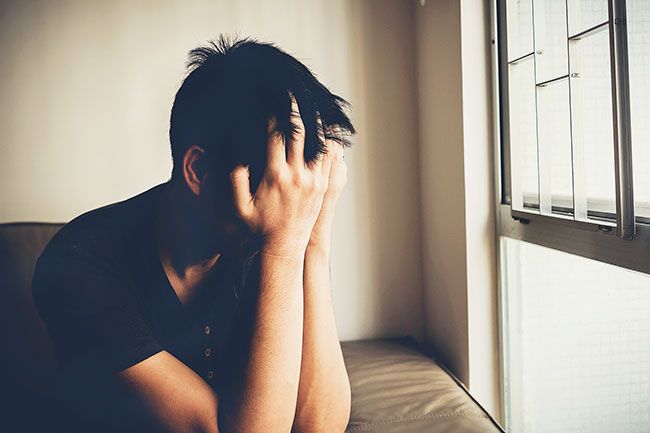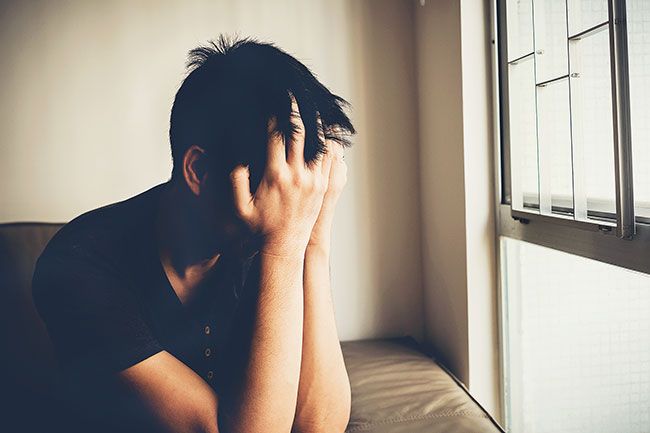Kertis: Let’s not lose sight of rising addiction recovery demands

Gov. Kate Brown Brown announced last week that the majority of Oregon would be taking a major step in the COVID-19 pandemic by starting the long process of reopening for business.
Joseph Kertis is a veteran healthcare professional turned journalist. Former clinical director at a drug and alcohol treatment center, his experience in substance abuse and addiction recovery give him a unique insight into one of our nation’s most challenging epidemics. He uses this knowledge in his writing to present an expert viewpoint, in hopes of spreading awareness through education. Based in neighboring Lincoln County, he is a featured author on the healthcare website www.addicted.org.
The easing of restrictions, which took effect last Friday, applies to 31 of the state’s 36 counties, including Yamhill. Still to follow suit are Multnomah, Washington and Clackamas in the Portland Metropolitan Area and Marion and Polk in the Salem Metropolitan area, where virus cases have been concentrated.
This plan constitutes phase one of a reopening process intended to get the economy back into gear.
It’s welcoming news for many, yet a cause of great concern for others, who may not be able to restore programs without state and federal stimulus help. That’s particularly true where pent up demand comes into play, as is the case with addiction recovery providers.
Their hope is that people struggling with substance abuse will now be able to seek treatment more safely. But they will need help if they are to deliver effectively.
Because we’ve been so inundated with COVID-19 news, many people have lost track of issues of significant concerns.
For years, the most substantial public health dilemma has been substance abuse. But since the beginning of 2020, the average person would be hard-pressed to tell you anything seen or heard about addiction.
The virus developed so rapidly that we didn’t have accurate data initially on how people suffering substance abuse disorders were coping with increased stressors and more limited access to help. But it didn’t take long for us to find out, unsurprisingly, that things weren’t going too well.
Reports have begun to flood in from different counties across America about a spike in overdose deaths since the pandemic hit. We’re also hearing stories of people in recovery succumbing to the stressors and relapsing. As a result, we can expect many people will need assistance as life begin to return to normal.
Treatment centers did not shut down during the pandemic, as they are considered essential businesses.
However, many drug and alcohol rehab programs saw patients start pulling out as the scope of the pandemic became evident in mid-March. They also experienced a falloff in the number of people newly enrolling in treatment programs, likely out of fear they’d contract the virus in a group setting.
The substance abuse treatment industry was simply not devised to withstand infectious diseases like the coronavirus. Its entire model is the antithesis of social distancing.
There’s been a push to implement telemedicine technology to make things more convenient for the patient. But that raises fears such changes will make addiction treatment services even less effective than they already are.
So much of what makes treatment successful is getting the person out of the area where he continually buys and uses drugs. Patients also benefit from being around other people also in recovery. Finally, personal contact provides the opportunity to implement checks and balances, such as drug testing, that are not possible remotely.
A switch into remote delivery also raises financial issues for providers.
On the plus side, they are now, for the first time, being allowed to bill Medicaid and most private insurance companies for remote delivery of services. This has opened the door to an entirely new world of possibilities.
However, most treatment centers weren’t doing all that well financially in the first place. And they have taken a substantial new hit during the pandemic shutdown.
A push into telemedicine requires camera equipment and computer hardware and software that can prove very expensive. Most providers aren’t in a position to make that kind of investment right now.
Despite the ease of engaging in rehab from a couch at home, patients just aren’t logging on for sessions. That increases the hesitation for providers to plunge in.
This is not a good indicator for what is to come.
If more people are developing new problems or relapsing into old ones as a result of the pandemic, there should be increased demand. This is especially so if the process is made more accessible, thanks to remote delivery options.
Maybe part of the problem is those in need lacking faith in telemedicine as a practical alternative. At least so far.
Telemedicine may very well be the wave of the future. But if patients aren’t convinced it will be helpful, they won’t embrace it. And that means they will be continuing their reliance on drugs.
Perhaps a person addicted to heroin experiences severe withdrawal symptoms every time he stops using. Perhaps a person prone to relapse feels he won’t make it through without strict drug testing. How is telemedicine going to address that?
It may well be telemedicine is narrow in its application, thus will never supplant standard treatment. But it clearly opens some new doors, and we need to move quickly to take advantage.
As the state reopens, we can expect to see situations emerge we didn’t even know existed.
Substance abuse isn’t one of those. Treatment facilities will need to gear up for an influx of patients seeking treatment.
Whether it’s funding to develop telemedicine capabilities or simply to restore traditional treatment programs on an expanded basis to meet expanded demand, consideration should be given to treatment centers as well as manufacturers, retailers and other such economic mainstays for emergency funding. A broadly shared stimulus is what our economy really needs.
 Pathways Drug Rehabilitation Luxury Addiction Treatment & Detox Center
Pathways Drug Rehabilitation Luxury Addiction Treatment & Detox Center



